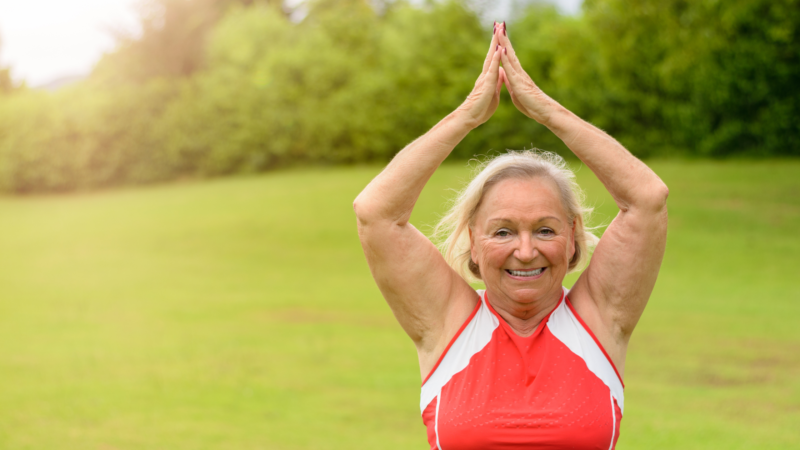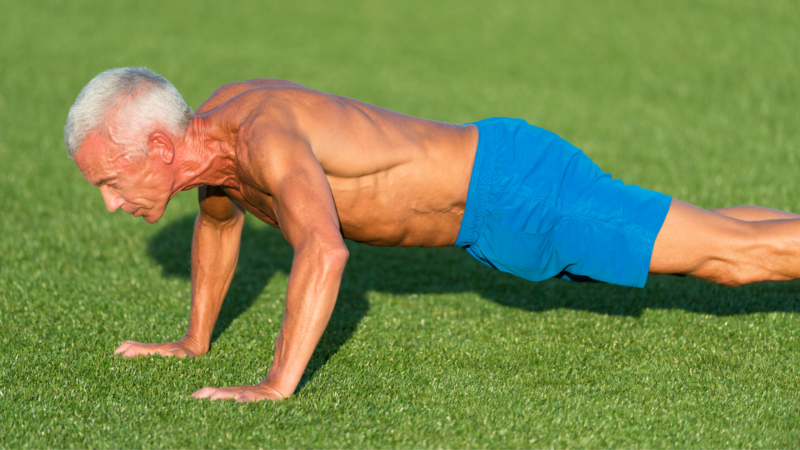How we view ageing has a big impact on how we respond.
There are some firmly held beliefs (both individually and culturally) about getting old. If we’re honest, most of them are not positive.
Growing older is widely associated with slowing down, aching joints and memory issues, to name just a few. The more we are reminded about ageing, the more we become aware of it (the irony of writing this article is not lost on me!).
How we view ageing has a big impact on how we respond. If we believe it’s going to be a negative experience, it probably will be, but the opposite may also prove true.
Many ageing stereotypes are based on rigid opinion, i.e. a belief that things are happening that you cannot change. There are always exceptions, but in most cases, you can influence the trajectory of the ageing process and/or chronic conditions. The human body and mind are highly malleable to the demands of different tasks and environments.
Use it or lose it
At a biological level, we are inherently lazy. Our body (and minds) will usually opt for the most comfortable option to conserve or store energy.
We’ve all heard the phrase ‘use it or lose it’ concerning muscles. But why is this the case?
Using muscles as an example; muscle tissue is energy-hungry. The more of it you have, the more energy you need to sustain it. Think of some of the world’s strongmen; they need to eat four to five times a regular person’s food intake due to the energy demands from so much active muscle tissue.
Your body will maintain only as much muscle tissue as it thinks you need to complete the activities you do each day. For strongmen, that’s a lot of big weights. For me, it’s a lot of running. What is it for you?
If you stop doing as much (or you have a period of ill health that lays you up for a while), you will see a decline in muscle activity as your body tries to conserve energy. The same principles apply to all our body systems such as our heart, lungs, circulation networks and brain activity. Over time this can make activities that we used to find easy very challenging.
Building fitness
Considering that your physical (and mental) capacity can decline with less stimulation, it stands to reason that it can also improve. However, this is harder and requires direct effort.
When we assess our capacity to complete certain activities, we are talking about fitness. You need a level of fitness that enables you to do what you want to do.

Suppose we’re going to get back to doing certain activities (such as walking round the shops after a knee replacement). We need to build up our fitness to the point that makes the activity possible. Building fitness (whether it’s mental or physical) follows a basic equation:
Stress + Rest = Growth
To build fitness, you need to apply a sufficient amount of stress to cause a reaction. That is, your body recognises that you’ve pushed it a bit harder than it’s used too.
When you rest, your body responds to the stress by ensuring you can deal with it should it be experienced again soon. There is never a singular change, but, for example, you might respond by growing more lean muscle tissue.
However, the catch in the equation is in the balance between the stress and rest. Too much stress can be overwhelming and lead to injury or excessive fatigue. Too much rest and we ‘lose it’.
Building fitness is a gradual process, and this is where working with a physiotherapist from TPC (aka a TPCer) can be helpful. Your TPCer can work with you to apply enough stress that results in gradual improvements and minimises the risk of overdoing it. As qualified physiotherapists, TPCers can also provide treatment to help ease aches and niggles, all with the intention of helping you smash your goal!
You have a choice
Your age is not a limiting factor to change or building fitness. You can choose what action to take each day to affect your fitness. For example, do you do the exercises on your exercise program OR do you sit on the couch to watch TV for 20 minutes?
I’m not saying you are making the right or wrong choices. What’s right or wrong is entirely dependent on your circumstances, what makes you happy and what your goal is. But if you find yourself avoiding something you want to do because ‘you’re old’, I hope reading this can make you reconsider whether it’s possible or not.
The Physio Co’s team of physiotherapists are available to visit you wherever you call home, and available for online consultations. We are here to help, so get in touch today for more information – please call on 1300 797 793 or email [email protected]
Article written by Michael Quinn, The Ops Guy

 1300 797 793
1300 797 793
